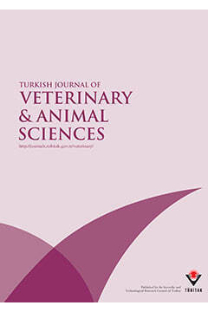Effect of Sodium Lactate on the Microbiological Quality and Shelf-Life of Ready to Cook Meatballs
This study was performed to investigate the effects of sodium lactate on the microbiological quality and shelf-life of raw meatballs. For this purpose, 0.5%, 1.0% and 2.0% sodium lactate were added to the batter of Inegol meatballs that were prepared in accordance with traditional methods. The samples of meatballs were packed after being shaped and then were stored in a refrigerator for ten days. Over this time, the samples were periodically analysed for sensorial properties, ammonia amounts and microbial counts. The sensorial characteristics of the meatballs were not altered by the addition of sodium lactate. However, sodium lactate retarded microbial growth depending on the concentration used. Moreover, in the meatballs containing sodium lactate, a large increase in shelf-life was observed, compared with the control group not containing sodium lactate. The control group of refrigerated meatballs were spoiled by the 4th day, but the samples containing 0.5% and 1.0% sodium lactate were spoiled by the 6th and 8th days respectively. The meatballs containing 2.0% sodium lactate did not show indications of spoiling even on the 10th storage day. The results of this study indicated that the addition of sodium lactate into meatballs improved the microbiological quality and extended the shelf-life
Effect of Sodium Lactate on the Microbiological Quality and Shelf-Life of Ready to Cook Meatballs
This study was performed to investigate the effects of sodium lactate on the microbiological quality and shelf-life of raw meatballs. For this purpose, 0.5%, 1.0% and 2.0% sodium lactate were added to the batter of Inegol meatballs that were prepared in accordance with traditional methods. The samples of meatballs were packed after being shaped and then were stored in a refrigerator for ten days. Over this time, the samples were periodically analysed for sensorial properties, ammonia amounts and microbial counts. The sensorial characteristics of the meatballs were not altered by the addition of sodium lactate. However, sodium lactate retarded microbial growth depending on the concentration used. Moreover, in the meatballs containing sodium lactate, a large increase in shelf-life was observed, compared with the control group not containing sodium lactate. The control group of refrigerated meatballs were spoiled by the 4th day, but the samples containing 0.5% and 1.0% sodium lactate were spoiled by the 6th and 8th days respectively. The meatballs containing 2.0% sodium lactate did not show indications of spoiling even on the 10th storage day. The results of this study indicated that the addition of sodium lactate into meatballs improved the microbiological quality and extended the shelf-life
